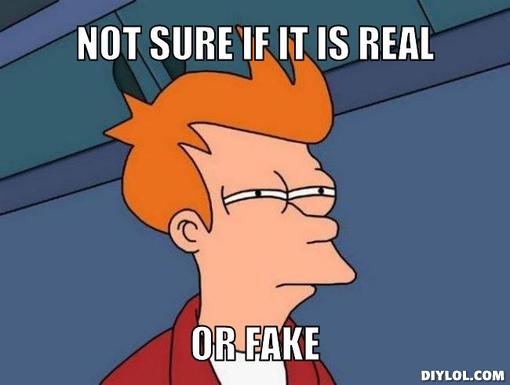5 Obvious Tell-Tale Signs You're Being Conned By An Article Online
The Internet is full of articles that are just not true. We give you the lowdown on how to spot the fakes!
1. Spelling mistakes. While many satire sites are designed to look very similar to real news site, they can’t spell to save their lives! Make sure you’re getting your news from the right sources.
2. The article is ancient! Sometimes, old news resurfaces even when it’s no longer relevant. Keep your eyes peeled and check the date!
Before you embark on your next furious tirade on social media, the very least you could do is to make sure what you’re getting pissed about isn’t outdated news.
We’re the most skimming folks ever. We just hit “Share” sometimes without even clicking through to read the article. Admit it. We deduce that we learn all we need from the featured image and the headline. All you gotta do is click through and pay attention to what’s in front of you.
awesomelyluvvie.com3. There are irregularities in the video. Saw a video of an eagle picking up a baby? It's easy to check if it's fake. Make sure the video follows to rules of physics!
In a video with more than one shot, it can be revealing to compare the size and position of objects. Although things may look realistic in one shot, mapping the angles and focal lengths can reveal differences that point toward manipulation.
When things move in the real world, they must adhere to the rules of physics. Physics education tools such as Tracker can create dynamic models of video events. The forces at work in those models can then be compared to known factors in the real world, like gravity, mass and acceleration, to check for magical behaviour.
If you didn't understand any of the explanations, here's a simple one: Everything must adhere to the rules of physics and if the video don't seem natural, it probably is fake.
4. There are no other sites reporting it. Before you hit "Share", just do a quick Google search to see if major news websites are reporting it. If they aren't, the article is mostly likely fake.
If you read something that seems outrageous, before you pass it on to others, pause and Google it. Can you find a second source? If not, wait. Don’t try to play FIRST on news and post it just so people can comment “FAKE.” Be sure. If you Google it, and the news isn’t corroborated anywhere else, you might wanna wait til you find other receipts.
awesomelyluvvie.com




